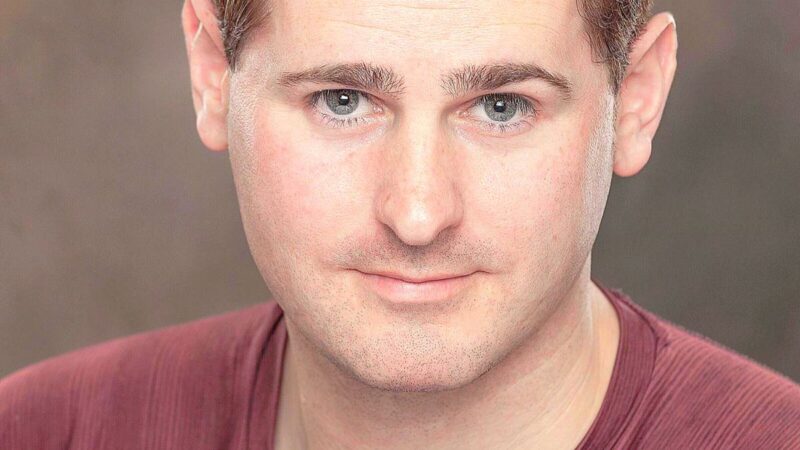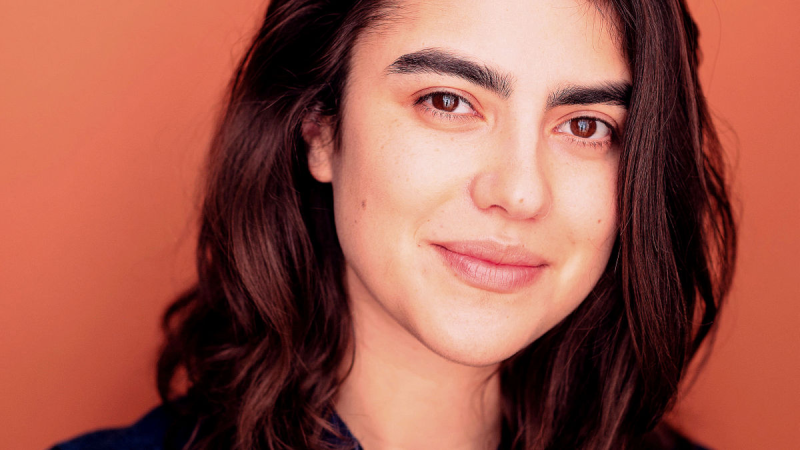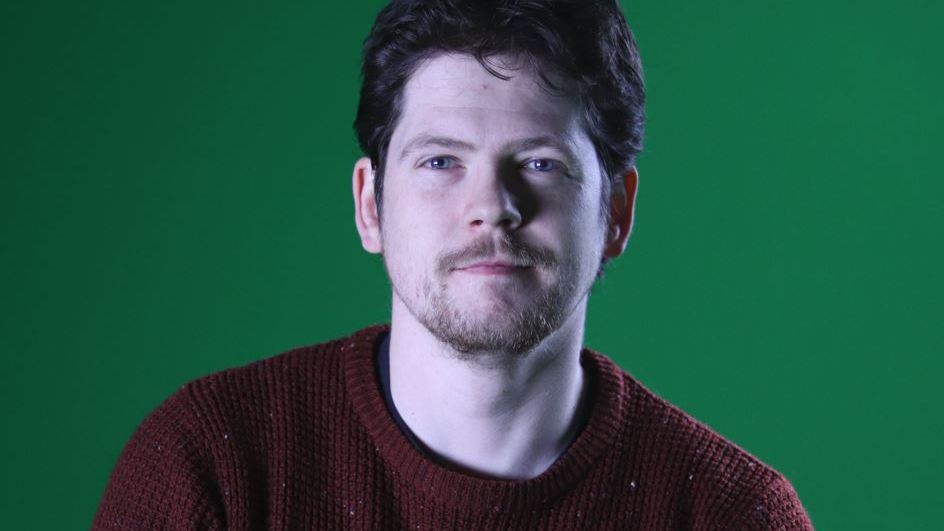
An Industry Case Study
Narrative | Dramatic Features
Film Name: Standing Woman
Genre: Horror
Length of film: 14.59
Date: 2022
Director: Tony Hipwell
Producer: Tony Hipwell & Max Gee
Writer: Max Gee
Cinematographer: Jenni Suitiala
Editor: Luke Downing
Composer: Sakiko Sakuragi
Production Company: Grunt Productions
Budget: $25,000
Financing: Self-Financed
Shooting Format: Arri Amira
Screening Format: 1:85 4K Master
World Premiere: Oxford Film Festival
Awards:
– The Best Sci-Fi – Coney Island Film Festival
– Best Horror – SA Indie Film Festival
– The Best Actor – Unrestricted View Film Festival
– Best Make Up FX – Unrestricted View Film Festival
– The Best British Film – Lonely Wolf
– Best Concept – Lonely Wolf
– Best Make Up FX – Lonely Wolf
– Nominated Best Screenplay – Film Quest
– Nominated Yorkshire Film Award – LIFF
Website: Standing Woman on ALTER
The Official Trailer for Standing Woman
Watch The Trailer for Standing Woman directed by Tony Hipwell
A Short Biography of Tony Hipwell
Tony is a multi-award-winning independent filmmaker based in the north of England whose work has screened at Academy Award, Canadian Screen Award, BAFTA and BIFA qualifying festivals such as Fantasia, FrightFest, Edinburgh, and in competition at the Leeds International Film Festival.
In 2012 Tony co-wrote, edited and directed the micro budget feature, Whoops! The romantic comedy horror premiered to sell out audiences at the 2013 Raindance Film Festival before being picked as the only British filmmaker.
The Tony Hipwell Interview
indieactivity: What is your film about?
Tony Hipwell (TH): Standing Woman is an adaptation of the short story by acclaimed Japanese author, Yasutaka Tsutsui. Set in a near future under authoritarian rule, the story centres on a propaganda filmmaker dealing with the loss of his wife and his own culpability for her fate. A writer friend of mine adapted the short story for fun as part of her PHD and shared it with me.
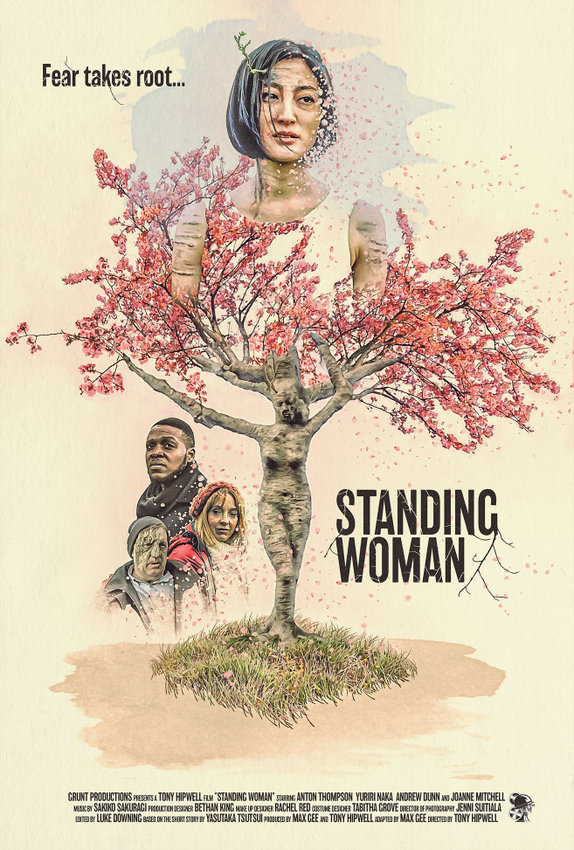
I was instantly gripped by the world it presented, it was so close to our own but pushed to a body horror extreme. With the rise of authoritarianism around the world and the spectre of climate change hovering over all of us, a story that tackled these issues but focused on the tragic story of a couple being separated was incredibly engaging on a human level whilst offering tremendous opportunities for world building and social commentary. I immediately knew I needed to make it.
Tell us about the festival run, marketing and sales?
Tony Hipwell (TH): We partnered with Festival Formula to build our festival strategy. They did a wonderful job of identifying a diverse range of festivals that really elevated the profile of the film. It’s been by far the most successful festival campaign I’ve had and will highly inform how I approach future festival plans. As the run progressed, we began to get a stronger idea of the landscape we were playing in, and this gave us confidence to submit to more ambitious venues such as Fantasia which we were so excited to be selected for.
That said, the first half of our run was somewhat blinkered by the pandemic, so we couldn’t attend any festivals in person. That changed with FrightFest which also served as a UK premiere and was a big thrill for the team. Other highlights have been selections for Academy Award qualifying festivals such as DeadCenter and HollyShorts as well as being nominated for the Yorkshire Film Award at the BAFTA qualifying Leeds International Film Festival.
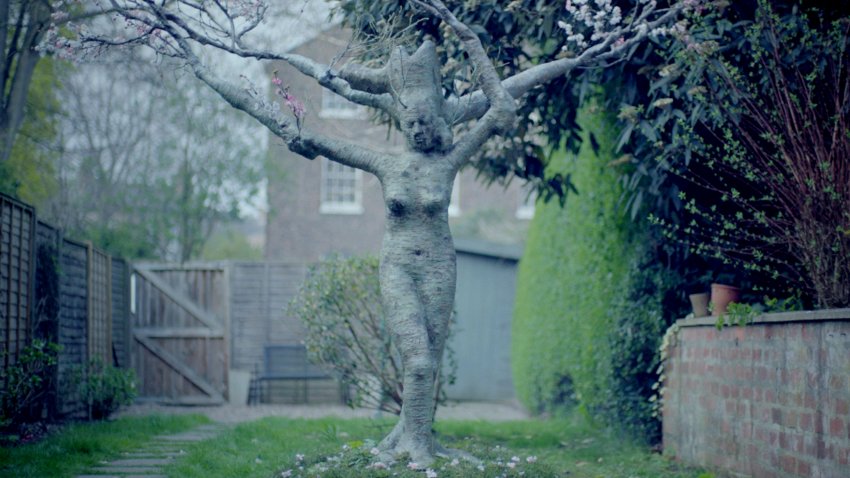
It’s been a great run for nominations with awards for Best Sci-Fi at the Coney Island Film Festival and Best Horror at the SA Indie Film Festival. We also picked up Best Actor and Make Up at Unrestricted View. The run came to a very satisfying close with FilmQuest where we were nominated for Best Screenplay. The film is now available on ALTER who acquired it after discovering us at HollyShorts.
Give the full Official Synopsis for your film?
Tony Hipwell (TH): Standing Woman is a dystopian drama with flourishes of body horror that depicts a near future where an authoritarian government turns those it deems to be criminals into trees as part of an insidious environmental campaign. Under this green dictatorship, a propaganda filmmaker wrestling with the recent ‘planting’ of his wife for making seditious comments, embarks on an emotional journey to say a final goodbye. Featuring incredible depictions of a populace being slowly vegetized by a production team who have worked on the likes of Censor, Doctor Who, and Peaky Blinders, the vision presented in Standing Woman is of a world that has edged into eco-fascism.
Development & Financing?
Tony Hipwell (TH): Development was extensive. All in it took 5 years to get the film made from start to finish. 2 years were taken up just developing the script. This was partially for ourselves but it was also a requirement to get script approval from the author before we could acquire the screen rights for a short film adaptation. We had a lot of conversations and went to a lot of trouble of getting the various drafts translated properly into Japanese so they would understand our intent.
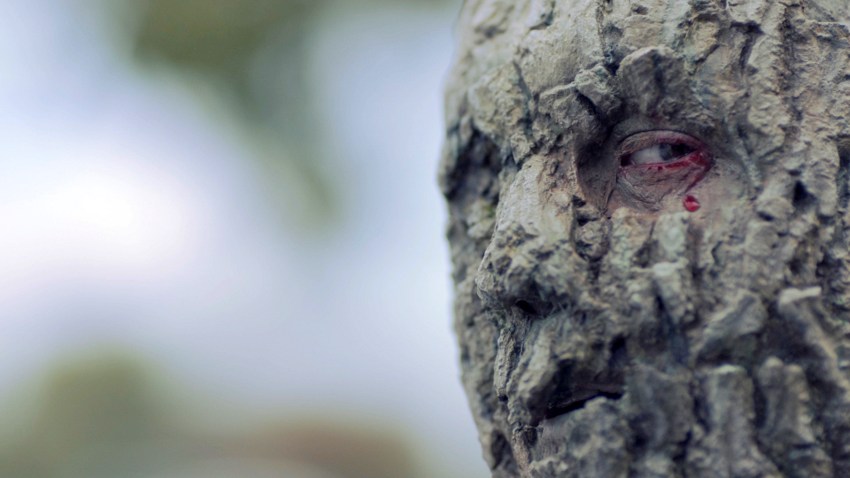
The estate was great and seemed to trust we wanted to honor the source material while telling our own story as they granted us the rights for a very fair price. Once we had the rights, we had to set to work on how we were going to realize the tree people which was a rewarding challenge.
Another big challenge initially was funding. We tried several routes and got close with some schemes but ultimately it became clear no help was coming so I made the decision to self-finance along with Max Gee, my co-producer and writer. It’s something I think every filmmaker needs to weigh up if it’s worth it, particularly with short film.
In the end, I simply had to realise the film and so the outcome was truly less important than the act of making it, despite the significant personal cost. That said, I’ve been very gratified by the response and opportunities it has opened up which has validated so much of the work by the cast and crew who were the very best I have worked with.
What was the creative approach to the film?
Tony Hipwell (TH): There were a lot of stylistic and aesthetic inspirations that drove the creative approach. Given the source material, I was very keen to bring a Japanese voice to the film and that came through some of the cast and crew such as lead actress Yuriri Naka and composer Sakiko Sakuragi, as well as the vast amount of anime and Japanese cinema out there, material that I’ve been influenced by for most of my life.
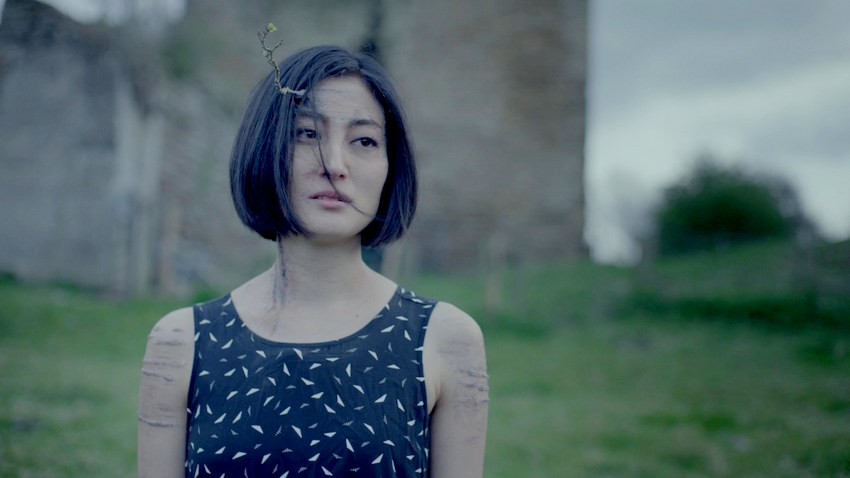
Broader inspiration came from filmmakers like David Cronenberg and Paul Verhoeven. Their approaches to body horror and political satire had a huge impact on me when I was growing up and I couldn’t imagine another way of tackling the tone that didn’t harken back to their work.
There was of course the political climate. The film took five years to produce, and the world saw a great deal of upheaval in that time. What went from quite a far-fetched scenario suddenly started to feel very possible, should the technology become real.
It’s been interesting that we’ve had a lot of comparisons to Black Mirror, which is very flattering, but it was not something we were trying to copy as I felt it was something many had tried to do and failed. We simply tried to focus on the drama and reality of the story and characters rather than force a style on them.
The practical effects?
TH: We spent two years developing the look of the tree people. We had to get this aspect right and pushed production by a year to accommodate the design process. Some initial concept designs were really far out, but it wasn’t a case of whether or not we could do them – it all boiled down to tone. So much of the film is driven by conversation these characters have, snatched and hushed moments of humanity, that I was mindful to not distract the audience with too much body horror.
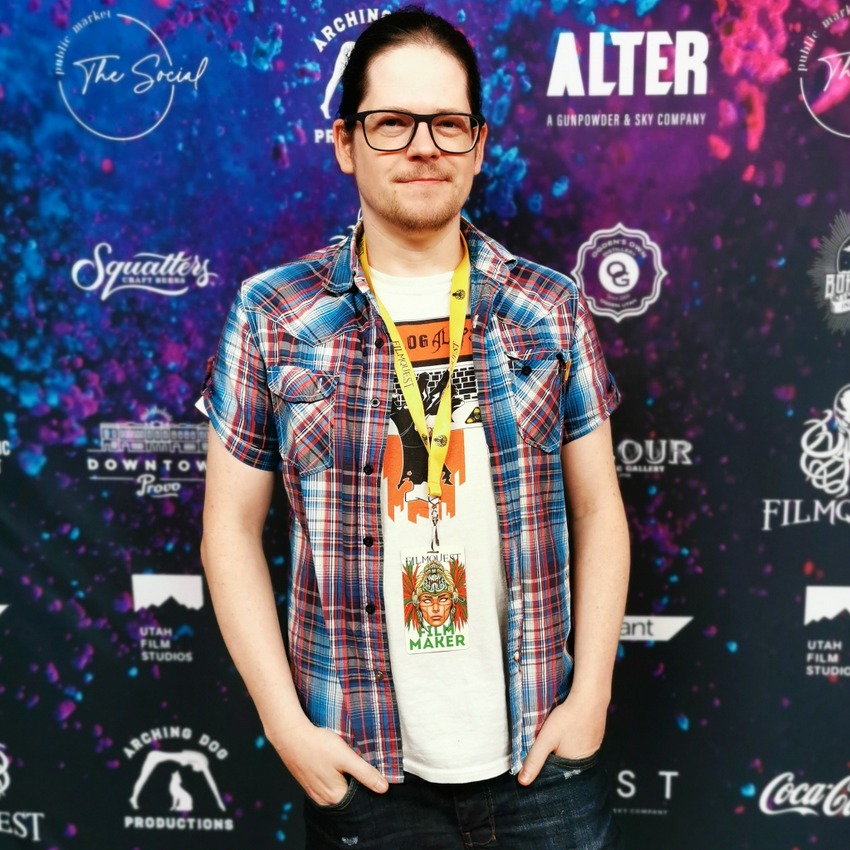
It didn’t feel right for the scene with the postman or the final moments with Mari to have them writhing in pain and distractingly gruesome. There’s also the propaganda aspect of the design where the government is touting this as something more humane than prison or deportation so it couldn’t be too overt. It had to appear to be a benign, almost peaceful transformation which in reality was incredibly painful with blood running beneath the bark.
My production designer Bethan King, really wanted to keep it grounded and took casts of lots of different trees and used that to give each tree person (or dog) we meet a different genus of tree. So, Mari is a Cherry Blossom tree, and the Postman is an Oak tree while the dog is a shrubbery. Fabricating the full-size tree sculpts was a huge job, so much so we had to split production in to two blocks to give the time needed to refurb sculpts used in one block in order to reuse them in another to keep costs down. I was so disappointed we couldn’t keep any of them after we wrapped. The Mari tree in particular was breath-taking.
Production?
TH: I was able to pull in a lot of crew I’ve worked with over the years such as my DoP Jenni Suitiala and 1st AD Joe Burrows, but the film also gave a great opportunity to work with new people such as the lead cast and Make-up Artist Rachel Red and Costume Designer Tabitha Grove. I always like to find a balance of old and new in my cast and crew and this was a great mix of that which led to very rewarding collaboration across all departments as there was so much crossover.
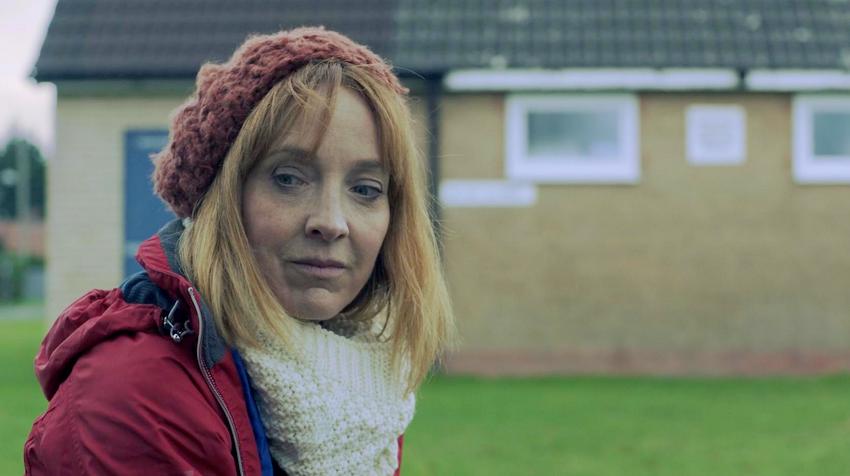
The Tree Postman for instance required not just the actor and costume but make up FX and production design to complete the illusion. Together with the years of prep it all lead to the smoothest shoot I’ve ever had. We never went over schedule and pretty much everything went to plan. The team had one issue with a land-owner trying to extort us despite being on public land with permissions to shoot, but we didn’t let that stop us and the entire cast and crew delivered to a level that was truly humbling.
We wrapped in late April 2019 and initially felt we’d turn the film around quickly after that, but my editor Luke Downing was very pressed for time due to other commitments, and I was trapped in post on a feature film, so we didn’t get to picture lock until early March 2020. And then lockdown happened so all the sound mix, music and grade had to be done remotely which was an educational experience.
Post was completed in late summer of 2020, and we began submitting to festivals shortly after but didn’t premier until March 2021 at the Oxford Film Festival so it was a long process from receiving the script back in 2015! The festival run has only just finished in December 2022 with the final Other Worlds Festival , so it’s been quite the endurance test but also rewarding beyond all expectation.
Advice from the Filmmaker?
TH: I think a great piece of advice other than to “just fucking do it” as Ridley Scott is fond of saying, is to focus on character. It’s something that I’m always trying to improve, be it on the page, how I work with an actor or place the camera and time the edit around them. It is always challenging to generate empathy because it needs to feel effortless. You don’t want the audience to feel the mechanisms at work that are coaxing them to feel something in particular.
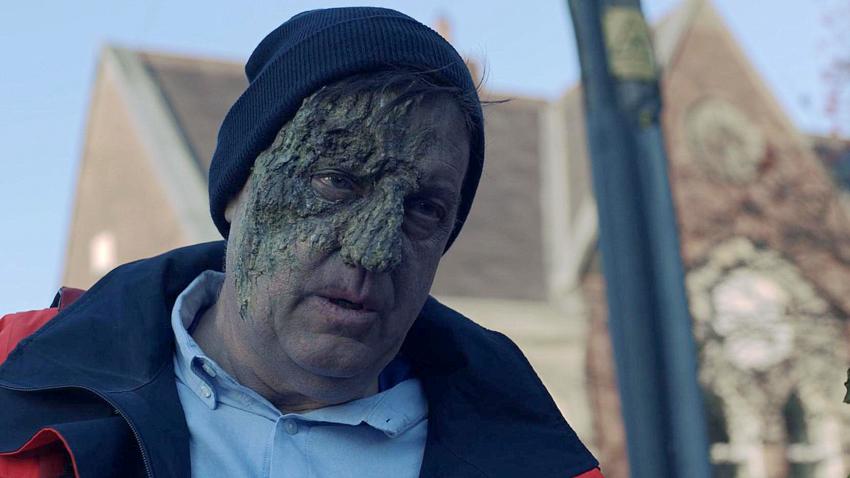
It should all feel natural and somewhat inevitable and a large part of that comes from life experience. The longer you’ve been around, the more people you encounter and the more that feeds into the stories you tell. As long as the audience can recognize something of themselves in the characters, you will gain their empathy. Hopefully we have succeeded in that with Standing Woman.
Tell us what you think of the Case Study for Standing Woman. What do you think of it? Let’s have your comments below and/or on Facebook. Or join me on Twitter.
Follow Tony Hipwell on Social Media
Website
IMDb
LinkedIn
Twitter
Instagram
Vimeo
MORE STORIES FOR YOU

